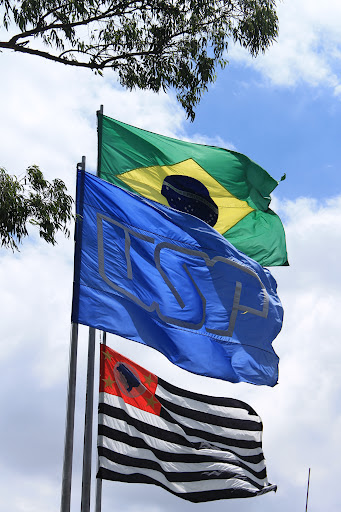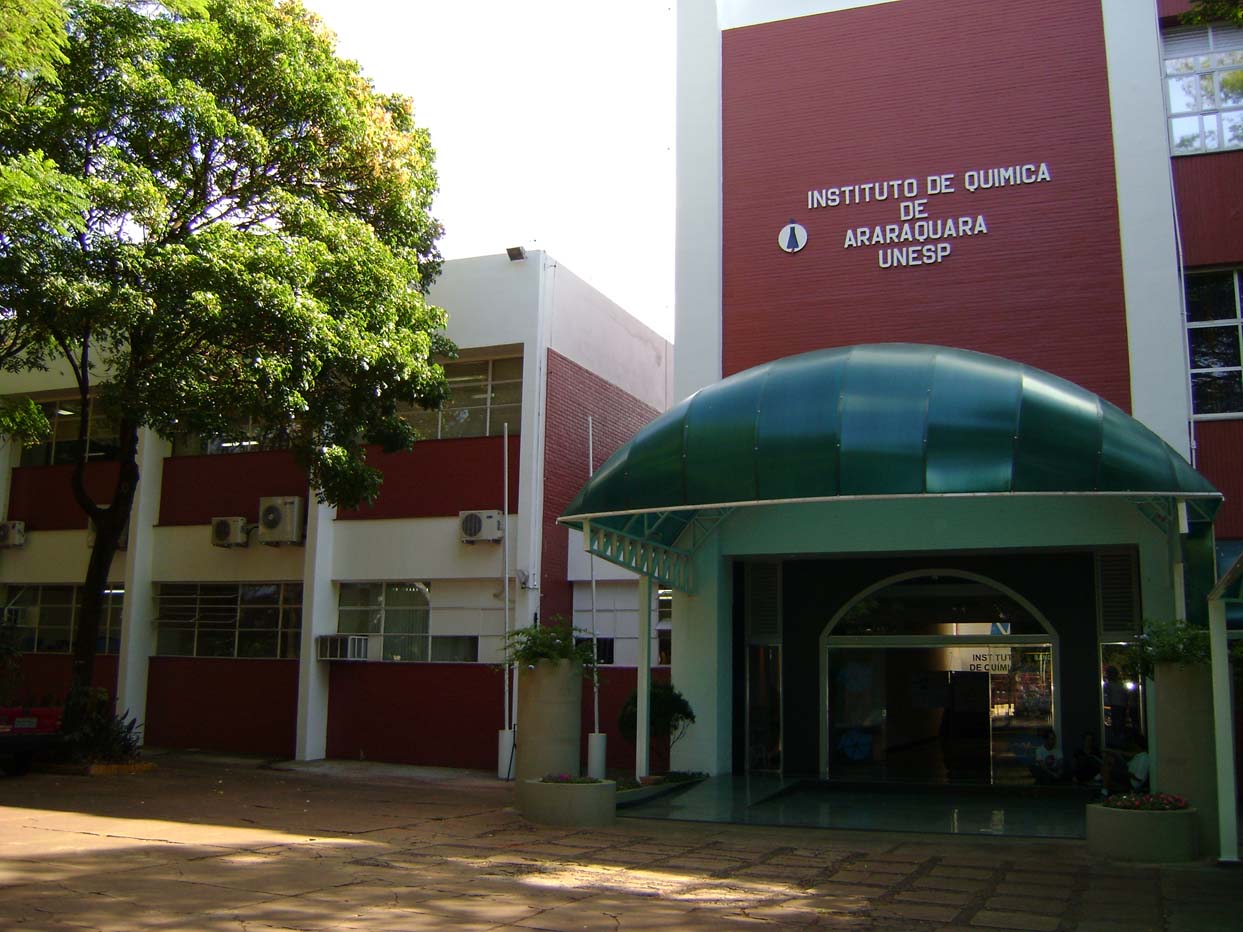Team:USP-UNESP-Brazil/Extras/USP and Unesp
From 2012.igem.org
(→UNESP) |
|||
| (15 intermediate revisions not shown) | |||
| Line 1: | Line 1: | ||
{{:Team:USP-UNESP-Brazil/Templates/Header}} | {{:Team:USP-UNESP-Brazil/Templates/Header}} | ||
| - | = | + | =The Universities= |
| - | The University of São Paulo (USP) is a public university maintained by the State of São Paulo | + | ===USP=== |
| + | {{:Team:USP-UNESP-Brazil/Templates/LImage | image=Bandeiras.JPG | caption= | size=200px}} | ||
| + | The University of São Paulo (USP) is a public university maintained by the State of São Paulo in Brazil, connected to the State Department of Economic Development, Science and Technology. The talent and dedication of faculty, students and staff have been recognized by various world rankings, designed to measure the quality of universities from several criteria, mainly those related to scientific productivity. | ||
Founded in 1934, the University of São Paulo is one of the most important institutions of higher education in Brazil. The talent and dedication of faculty, students and staff have been recognized by various world rankings, designed to measure the quality of universities from several criteria, mainly those related to scientific productivity. | Founded in 1934, the University of São Paulo is one of the most important institutions of higher education in Brazil. The talent and dedication of faculty, students and staff have been recognized by various world rankings, designed to measure the quality of universities from several criteria, mainly those related to scientific productivity. | ||
| Line 12: | Line 14: | ||
To develop its activities, USP has several campi spread through the cities of São Paulo, Ribeirão Preto, Piracicaba, São Carlos, Pirassununga, Bauru and Lorena, as well as teaching units, museums and research centers located outside these spaces and different municipalities. | To develop its activities, USP has several campi spread through the cities of São Paulo, Ribeirão Preto, Piracicaba, São Carlos, Pirassununga, Bauru and Lorena, as well as teaching units, museums and research centers located outside these spaces and different municipalities. | ||
| - | |||
| - | |||
| - | |||
| - | |||
| + | ===Unesp=== | ||
| + | {{:Team:USP-UNESP-Brazil/Templates/RImage | image=Unesp_Araraquara.jpg | caption= | size=300px}} | ||
Established in 1976, isolated from institutes of higher education that existed in various regions of São Paulo State, UNESP has 34 units in 24 cities, 22 of the country. Maintained by the State Government of São Paulo, is one of three public universities free education, alongside the USP (University of São Paulo) and Unicamp (University of Campinas). | Established in 1976, isolated from institutes of higher education that existed in various regions of São Paulo State, UNESP has 34 units in 24 cities, 22 of the country. Maintained by the State Government of São Paulo, is one of three public universities free education, alongside the USP (University of São Paulo) and Unicamp (University of Campinas). | ||
| Line 23: | Line 23: | ||
Over 35 thousand students can participate in special training programs and conduct extracurricular activities. They still have the possibility of acting in junior companies by providing diferenes types of services such as consulting, advisory, project design and polls. | Over 35 thousand students can participate in special training programs and conduct extracurricular activities. They still have the possibility of acting in junior companies by providing diferenes types of services such as consulting, advisory, project design and polls. | ||
| - | In graduate school, more than 10 | + | In graduate school, more than 10.000 students study in 118 programs, 117 master's students, six masters and 93 doctoral academic professionals. |
| + | |||
| + | {{:Team:USP-UNESP-Brazil/Templates/Foot}} | ||
Latest revision as of 06:14, 26 September 2012
 Introduction
Introduction Project Overview
Project Overview Plasmid Plug&Play
Plasmid Plug&Play Associative Memory
Associative MemoryNetwork
 Extras
ExtrasThe Universities
USP
The University of São Paulo (USP) is a public university maintained by the State of São Paulo in Brazil, connected to the State Department of Economic Development, Science and Technology. The talent and dedication of faculty, students and staff have been recognized by various world rankings, designed to measure the quality of universities from several criteria, mainly those related to scientific productivity.
Founded in 1934, the University of São Paulo is one of the most important institutions of higher education in Brazil. The talent and dedication of faculty, students and staff have been recognized by various world rankings, designed to measure the quality of universities from several criteria, mainly those related to scientific productivity.
Currently, the most important are the rankings of the Institute of Higher Education, Shanghai Jiao Tong University, established in 2003, and The Times (2004). In the latest edition of Shanghai University (2010), which ranks the top 500 universities in the world, USP was in the 143rd position. In the Index of the UK newspaper "The Times", USP was, last year, among the 250 best institutions in the world.
Its undergraduate degree is formed by 240 courses, dedicated to all areas of knowledge, divided into 42 units of teaching and research and offered to more than 57,000 students. The graduate degree is composed of 239 programs (308 masters and 299 doctorates).
To develop its activities, USP has several campi spread through the cities of São Paulo, Ribeirão Preto, Piracicaba, São Carlos, Pirassununga, Bauru and Lorena, as well as teaching units, museums and research centers located outside these spaces and different municipalities.
Unesp
Established in 1976, isolated from institutes of higher education that existed in various regions of São Paulo State, UNESP has 34 units in 24 cities, 22 of the country. Maintained by the State Government of São Paulo, is one of three public universities free education, alongside the USP (University of São Paulo) and Unicamp (University of Campinas).
More than 3500 teachers ensure students solid training. More than 7000 employees collaborate for the activities which are developed in the best way possible. The Unesp offers 179 undergraduate options in 68 higher level professionals that form each year, 5600 new professionals.
Over 35 thousand students can participate in special training programs and conduct extracurricular activities. They still have the possibility of acting in junior companies by providing diferenes types of services such as consulting, advisory, project design and polls.
In graduate school, more than 10.000 students study in 118 programs, 117 master's students, six masters and 93 doctoral academic professionals.
 "
"

















